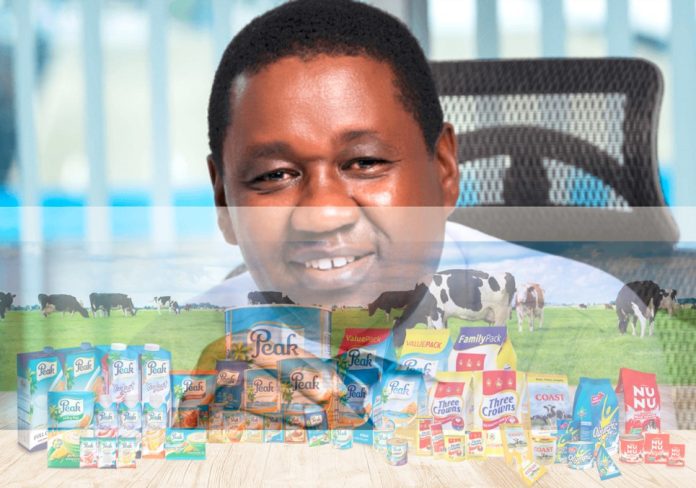News in brief: Nigerian milk brand, FrieslandCampina WAMCO, claims to source 5 million litres of milk locally for its production every year. The company says that the local milk production is not enough and it has to mix it with imported ones too. It adds that the climate and insecurity makes it difficult to produce more milk in the country.
FrieslandCampina WAMCO, the company that makes Nigerian brand dairy products Peak and Three Crowns, says that it sources five million litres of milk locally. In an interview, the company’s managing director Ben Langat shed some light on its operations and investment in the country’s dairy sector.
While FrieslandCampina is a multinational brand headquartered in the Netherlands, FrieslandCampina WAMCO (which means West African Milk Company) is its local subsidiary. Langat said that company started out importing its products to sell locally before beginning domestic dairy development in 1984, 11 years after it was registered.
The company now runs some of its NuNu Yoghurt factories on 100 per cent Nigerian made fresh milk. However, local production is not yet enough to satisfy its demand. So, it has to import some of its raw materials.
“From a milk production point of view, Nigeria has a hot, humid environment which typically is very good for beef cattle and that is why you see a lot of the Fulani cows doing very well. To grow high milk-yielding cows, you have to put in extra effort and this is what we have been doing for many years,” Langat explained.
Commitment to local production and challenges
Despite the lapse and extra input it requires, the company’s MD says that they are still committed to improving the industry. He says that they are the highest off-taker of fresh milk produced in Nigeria, buying five million litres annually.
FrieslandCampina WAMCO is developing dairy initiatives in Oyo, Osun, Ogun, Ondo, Kwara States and other locations in the north, according the company’s boss. So far, 12,000 farmers, most of whom adopt pastoral systems, are part of its backward integration projects. The company trains the member farmers on available sustainable practices, develop pastures, plant trees, and more.
In terms of climate impact of cattle rearing, Langat argued that the density of under 21 million cows in Nigeria spread over its vast land area cannot be as damaging as it is being reported in other countries. Instead, issues like afforestation, depleting water, pasture and grass should be of greater concern.
With its value adding 29 million milk centres in the country, the production company is improving communities by providing means of employment for delivery riders, truck drivers, extension officers, and others involved.
About challenges that FrieslandCampina WAMCO faces, Ben Langat said that scarce forex is a major one. It makes it difficult for the manufacturer to get needed produce from international partners as well as equipment. Then, the second challenge the executive mentioned was insecurity.
To solve the issue of scarce forex, the company relies on the Central Bank’s provision and commercial banks. It says that it restricts foreign currencies to only when it is absolutely necessary and some of its providers make supplies in naira. Yet, the scarcity affects cost of production and translate to higher retail prices.
Its hands are relatively tied in terms of the country’s insecurity. All it can do is continually engage with government agencies, offer solution, and protect its employees’ lives.



